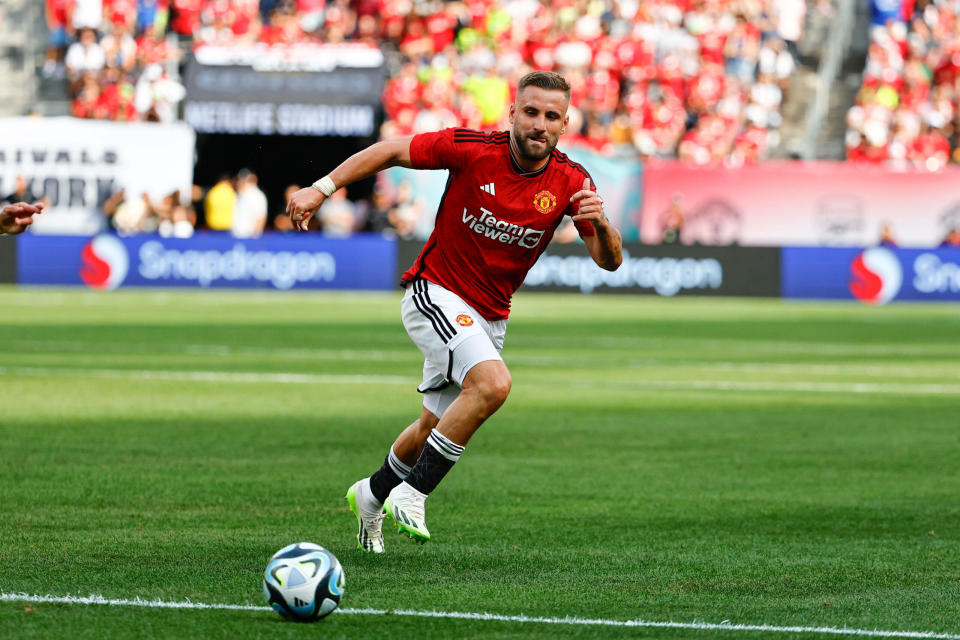Manchester United Set Marcus Rashford Asking Price Ahead of January Window – Report

Marcus Rashford’s Future at Manchester United: A Club at a Crossroads
Manchester United’s struggles with Profit and Sustainability Rules (PSR) have placed several of their players in a precarious position, with Marcus Rashford’s name now dominating the headlines. According to The Daily Mail, the Red Devils would entertain offers of £40 million for the England forward during the January transfer window, but the likelihood of bidders appears slim.
Rashford, once valued at £100 million following a stellar 30-goal season under Erik ten Hag, has seen his market value plummet. This decline is attributed to a significant dip in form coupled with his hefty £325,000-a-week contract signed last year. Even with his diminished price tag, potential suitors seem hesitant, leaving United in a bind as they look to raise funds to support new manager Ruben Amorim’s squad overhaul.

Squad Sales: Balancing PSR and Amorim’s Vision
Manchester United’s financial situation has forced them to consider the sale of several players, especially homegrown talents whose transfer fees count as pure profit under PSR regulations. Beyond Rashford, the club faces a dilemma with rising stars such as Kobbie Mainoo and Alejandro Garnacho. Selling either would significantly impact the squad’s future, a move the club seems desperate to avoid.
An insider at Old Trafford remarked, “The reality is that everyone is for sale,” reflecting the precarious nature of the club’s current strategy. However, some players, like summer signing Leny Yoro (£59 million from Lille), remain untouchable, highlighting Amorim’s intent to retain certain building blocks for his long-term vision.
Additionally, United are prioritising contract negotiations with talents like Amad Diallo, who becomes a free agent in the summer. Despite these efforts, the club’s financial pressures may leave them vulnerable to losing key contributors either through reduced valuations or expired contracts.
Ageing Stars and Expiring Contracts
While young prospects remain integral to the club’s future, United are grappling with ageing stars and injury-prone players. Antony’s market value has plummeted to around £23 million, and stalwarts like Casemiro, earning £375,000-a-week, pose a significant challenge in the transfer market. Meanwhile, Mason Mount and Luke Shaw’s long-term injuries have rendered them difficult to offload.

Several contracts expiring this summer—such as those of Christian Eriksen, Harry Maguire, and Victor Lindelof—offer little resale value. Maguire’s 12-month extension clause remains an option, but such decisions may be driven more by necessity than strategy.
United’s financial plight extends beyond player sales. The club’s recent managerial change, costing an unbudgeted £21.4 million, underscores the mounting challenges. Their £200 million summer spending spree now seems ill-timed as they wrestle with losses exceeding £300 million over three years.
Amorim’s Rebuild: Prioritising the Present
Despite these financial pressures, Amorim has focused on the squad’s immediate performance rather than upcoming transfers. The Portuguese coach has shown a keen interest in players who have thrived under his system, including Bruno Fernandes, Matthijs de Ligt, Noussair Mazraoui, and Manuel Ugarte. Their retention signals Amorim’s intent to build a team capable of both short-term success and long-term sustainability.
Yet, the broader picture is troubling. The inability to attract suitors for Rashford and other players reflects not only poor planning but also a wider struggle to find coherence within the transfer market. As the January window looms, United face the unenviable task of balancing squad needs with financial obligations, a process that may define their fortunes for years to come.

Our View – EPL Index Analysis
From a Manchester United fan’s perspective, the revelations in this report make for grim reading. Rashford, a player synonymous with the club’s identity, is now seen as expendable—a damning indictment of the current administration. While his form has undeniably dipped, the idea of selling a homegrown star for a fraction of his peak value is emblematic of deeper structural issues at Old Trafford.
The broader narrative is equally concerning. The club’s financial mismanagement, illustrated by excessive spending on transfers and managerial changes, has left the squad in a precarious state. The decision to keep underperforming, highly paid players while contemplating the sale of promising talents like Mainoo and Garnacho smacks of short-sightedness.
For many fans, Amorim’s focus on rebuilding is a glimmer of hope. However, the lack of clarity around the club’s transfer strategy raises fears of another cycle of mediocrity. The prospect of Rashford leaving, even hypothetically, feels like the club is prioritising balance sheets over its soul. United must find a way to navigate these challenges while retaining the essence of what has made them one of football’s great institutions.

 Yahoo Sports
Yahoo Sports 
